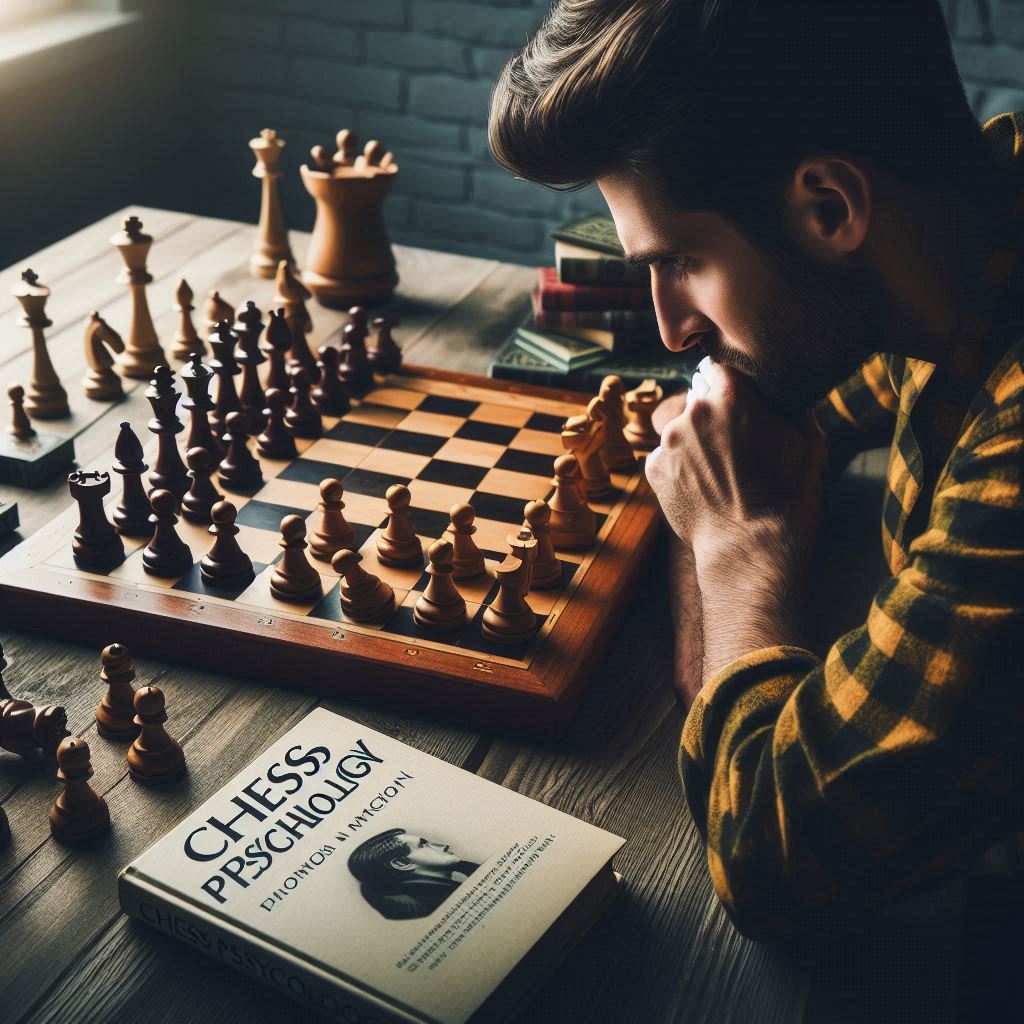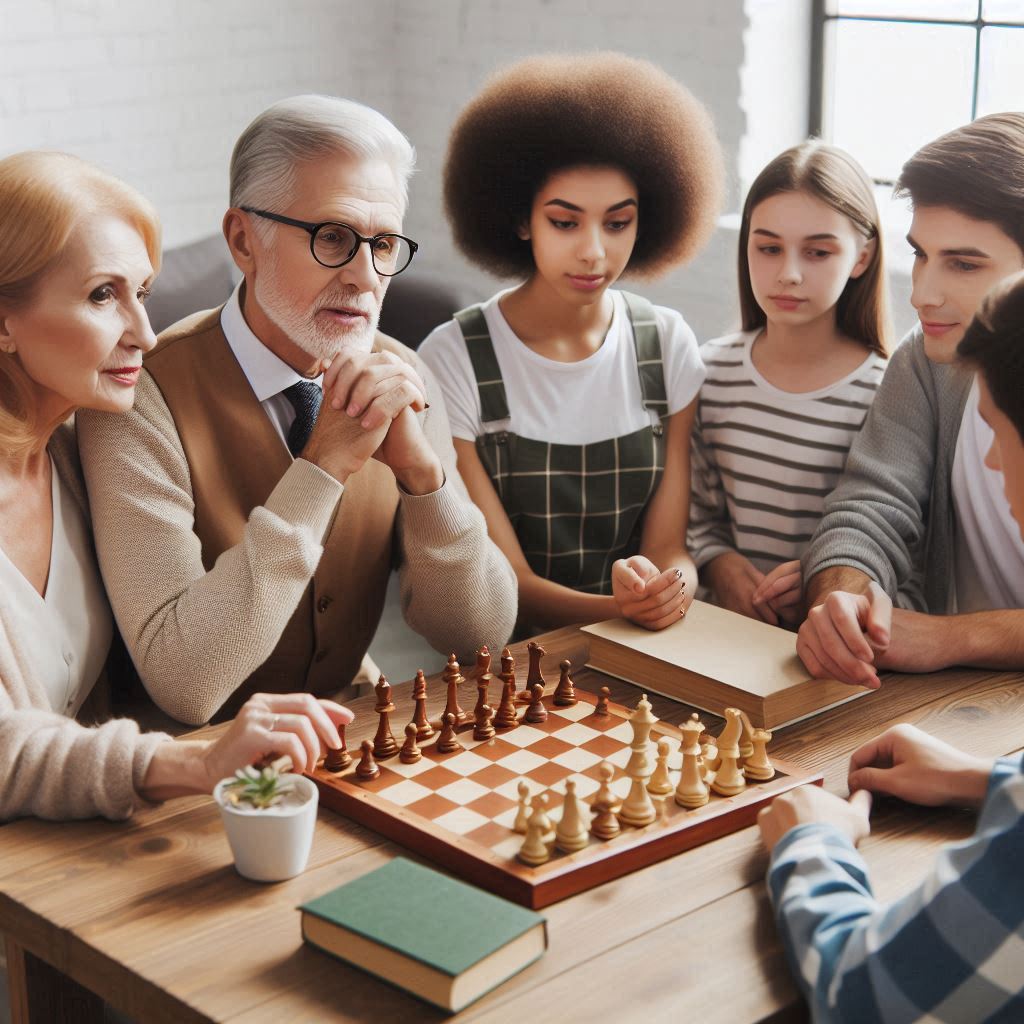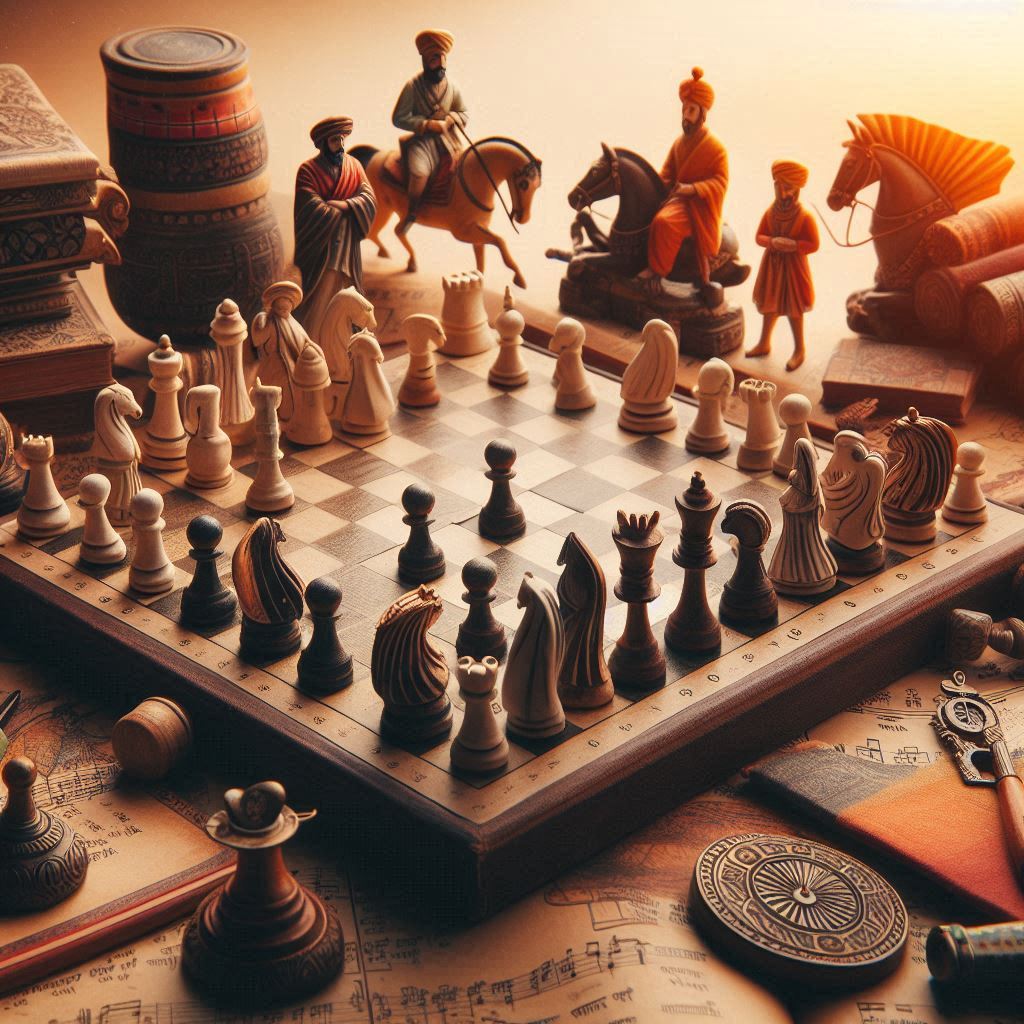Introduction
Chess, often described as a mental battle, involves much more than just strategic thinking and tactical prowess. The psychological aspect of the game plays a critical role in determining the outcome of matches. Understanding and mastering chess psychology can give players a significant edge over their opponents. This article delves into the importance of chess psychology and offers insights into how you can enhance your mental game.
Understanding Chess Psychology
What is Chess Psychology?
Chess psychology refers to the mental processes and emotional states that influence a player’s performance during a game. It encompasses aspects such as concentration, confidence, anxiety management, and resilience.
Why is Chess Psychology Important?
The mental state of a player can heavily influence their decision-making and performance. Even the most skilled players can falter if they are mentally unprepared or succumb to psychological pressure. Mastering chess psychology can help players maintain composure, think clearly under pressure, and make better decisions.
Key Elements of Chess Psychology
Concentration
Concentration is the ability to focus on the game and block out distractions. High levels of concentration allow players to think deeply about their moves and foresee their opponents’ strategies.
Confidence
Confidence in one’s abilities is crucial for making bold and decisive moves. Overconfidence, however, can lead to mistakes, so finding a balance is key.
Anxiety Management
Anxiety can hinder performance by causing players to doubt their moves and rush decisions. Effective anxiety management techniques are essential for maintaining calm and focus.
Resilience
Resilience is the ability to bounce back from setbacks and mistakes. In chess, resilience can mean the difference between a comeback victory and a demoralizing loss.
Strategies to Enhance Chess Psychology
Developing a Pre-Game Routine
A consistent pre-game routine can help players get into the right mindset. This might include physical exercise, mental visualization, or relaxation techniques to calm nerves.
Practicing Mindfulness and Meditation
Mindfulness and meditation can enhance concentration and reduce anxiety. Regular practice can help players stay present and focused during their games.
Setting Realistic Goals
Setting achievable goals helps build confidence and provides motivation. Whether it’s mastering a new opening or improving endgame techniques, having clear objectives can drive progress.
Learning from Losses
Every loss is an opportunity to learn. Analyzing games to understand mistakes helps build resilience and prevents the same errors in future games.
The Role of Body Language in Chess
Reading Opponents
Body language can reveal a lot about an opponent’s mental state. Recognizing signs of nervousness or overconfidence can provide psychological insights that influence your strategy.
Controlling Your Own Body Language
Maintaining a calm and confident demeanor can have a psychological impact on your opponent. Avoiding negative body language, such as sighing or slumping, helps maintain a strong mental presence.
Case Studies: Psychology in Action
Famous Psychological Battles
Examining historical games where psychological tactics played a key role can provide valuable insights. Examples include the famous matches between Bobby Fischer and Boris Spassky, where mental gamesmanship was evident.
Psychological Techniques Used by Grandmasters
Grandmasters often employ specific psychological techniques to gain an edge. Learning about their approaches can inspire your own psychological strategies.
Training Your Mental Game
Visualization Techniques
Visualization involves mentally rehearsing moves and scenarios. This practice can improve foresight and decision-making during actual games.
Stress Management Strategies
Techniques such as deep breathing, progressive muscle relaxation, and positive self-talk can help manage stress and maintain focus during high-stakes games.
Developing Patience
Patience is crucial in chess, where impulsive moves can lead to blunders. Practicing patience in everyday life can translate to better decision-making on the board.
Common Psychological Pitfalls
Tilt
Tilt is a state of mental frustration or confusion that can lead to poor decision-making. Recognizing and addressing tilt is crucial for maintaining composure.
Overconfidence
While confidence is important, overconfidence can be detrimental. Balancing self-assurance with humility and caution helps prevent careless mistakes.
Fear of Losing
The fear of losing can cause players to play too cautiously or make uncharacteristic errors. Developing a healthy attitude towards losses helps mitigate this fear.
Enhancing Psychological Resilience
Building a Growth Mindset
Adopting a growth mindset, where challenges are viewed as opportunities for improvement, fosters resilience. This mindset encourages continuous learning and adaptation.
Embracing Challenges
Facing stronger opponents and difficult positions head-on builds mental toughness. Embracing challenges rather than avoiding them strengthens psychological resilience.
Celebrating Small Wins
Acknowledging and celebrating small achievements boosts confidence and motivation. These small wins contribute to overall psychological strength.
Psychological Preparation for Tournaments
Mental Conditioning
Mental conditioning involves preparing psychologically for the pressures of tournament play. This includes simulating tournament conditions during practice games.
Routine and Rituals
Establishing routines and rituals helps create a sense of normalcy and control, reducing pre-tournament anxiety.
Dealing with Pressure
Developing strategies to handle the pressure of competition is essential. Visualization, relaxation techniques, and positive affirmations can help manage tournament stress.
The Impact of Coaching on Chess Psychology
Finding the Right Coach
A coach who understands the psychological aspects of chess can provide valuable guidance. Look for coaches who emphasize mental preparation and resilience.
Mental Training Programs
Some coaches offer specialized mental training programs. These programs focus on enhancing psychological skills alongside technical and strategic training.
The Future of Chess Psychology
Technological Advances
Advancements in technology, such as AI and biofeedback devices, are providing new tools for psychological training. These tools can offer insights into mental states and help tailor training programs.
Integration with Traditional Training
Integrating psychological training with traditional chess training is becoming more common. This holistic approach addresses both the mental and technical aspects of the game.
FAQs
How can I improve my concentration during chess games? Improving concentration involves practicing mindfulness, minimizing distractions, and developing a pre-game routine that helps you focus.
What are some effective ways to manage anxiety before and during a chess game? Effective anxiety management techniques include deep breathing exercises, visualization, positive self-talk, and maintaining a calm pre-game routine.
How important is body language in chess? Body language is important as it can reveal your mental state to your opponent and vice versa. Maintaining a confident demeanor and reading your opponent’s body language can provide psychological advantages.
Can psychological training improve my chess performance? Yes, psychological training can significantly enhance your performance by improving concentration, managing anxiety, building resilience, and fostering a positive mindset.
What should I do if I feel overwhelmed during a chess game? If you feel overwhelmed, take a few deep breaths, refocus on the position, and remind yourself of your training. Staying calm and composed is key to making rational decisions.
How do grandmasters prepare psychologically for important matches? Grandmasters often engage in mental conditioning, visualization exercises, and establish routines to handle the pressure of important matches. They also analyze past games to learn from mistakes and build confidence.
Conclusion
The psychological aspect of chess is as important as the strategic and tactical components of the game. By understanding and improving your chess psychology, you can enhance your overall performance and gain a competitive edge. Incorporate the strategies discussed in this article to build mental toughness, manage anxiety, and maintain focus, ultimately becoming a stronger and more resilient chess player.



